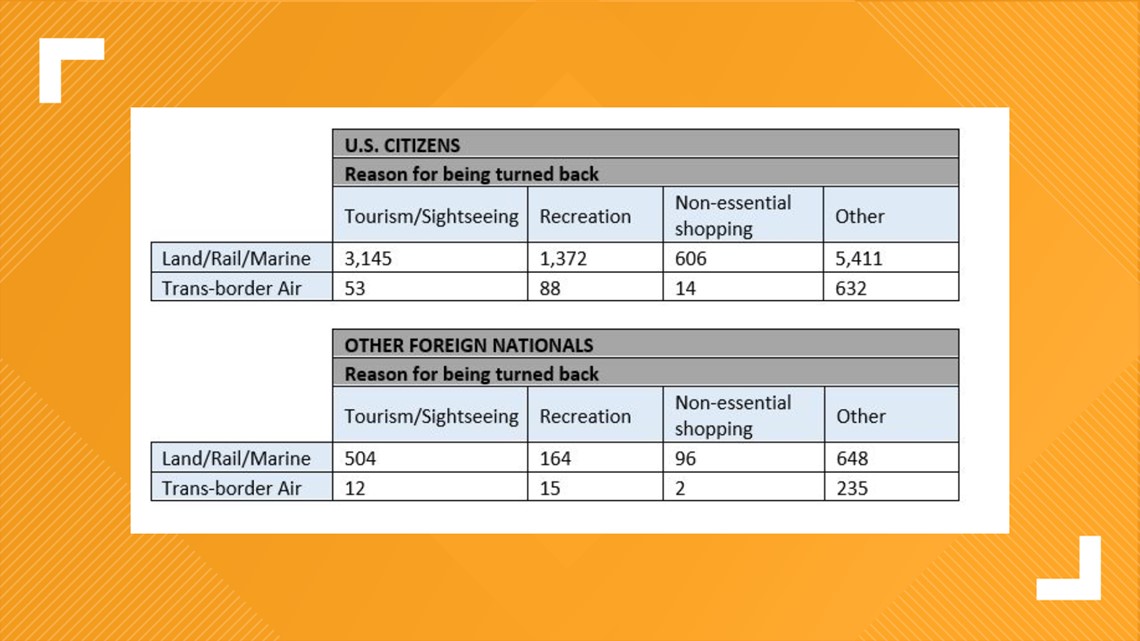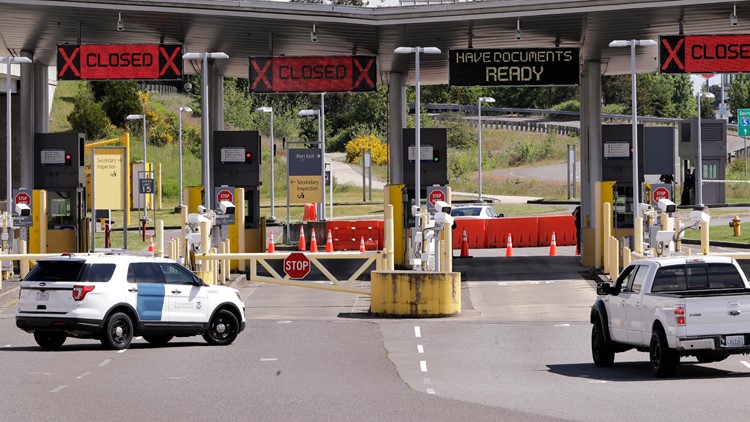The Canadian border has been closed to non-essential travel since March 18 due to the coronavirus pandemic, and since then it's been extended four times. The restrictions are in effect until August 21, 2020, but can be prolonged as necessary for public health reasons.
However, healthy, asymptomatic individuals for whom traveling across the border on a day-to-day basis is essential for work and daily life, are still permitted to cross the border.
Based on Canada Border Services Agency (CBSA) data requested by NEWS CENTER Maine, between March 22 and July 22, 2020, a total of 12,997 foreign nationals were denied entry into Canada from the U.S as a result of their purpose of travel being deemed to be discretionary (non-essential) by a border services officer (BSO) at time of processing.
Of the 12,997, 11,321 were U.S citizens and 1,676 were citizens of other countries arriving from the U.S.
The CBSA says upon arrival at a Canadian port of entry, travelers must satisfy a BSO that they meet the requirements for entry into Canada. Travelers are encouraged to have documentation that will demonstrate their reason for travel and length of stay, as well as any other information that may be relevant to substantiate how they meet the exemption. In all port of entry cases, the final decision is made by a CBSA officer, based on the information available to them at the time of processing.
Reasons for being turned back include tourism and sightseeing, recreation, and non-essential shopping. More than half were denied entry for unspecified reasons.


Canada, which has essentially flattened the curve, has strict travel restrictions on its citizens, as well as those who hold dual citizenship. All persons entering Canada – no matter their country of origin or mode of entry – must isolate themselves for 14 days if they have symptoms of or confirmed COVID-19 or quarantine themselves for 14 days if they do not have symptoms of COVID-19, with few exceptions.
Americans who are returning to the U.S. and Canadians who are returning to Canada are exempted from the border closure. Immediate family members of Canadians are also allowed entry into Canada but must quarantine or self-isolate for 14 days.
Most Canadians fear a reopening. The U.S. has more confirmed cases and deaths from COVID-19 than any country in the world while Canada has flattened the epidemic curve.
“Canadians have made tremendous sacrifices and we are seeing the fruits of our labor. We don’t want to waste those efforts by reintroducing the virus in Canada,” Canada’s Deputy Chief Public Health Officer Dr. Howard Njoo previously said.
Canadian officials have suggested the border could reopen if Canada and the U.S. had a similar situation in the number of cases and the ability to contact trace. "They don't have a good handle or control," Dr. Njoo said. “It will take some time ... It's more a matter of several weeks and months, or a month or so as opposed to days.”
As of Monday, the U.S. has the most cases in the world with 4,687,828 total cases, while Canada has 118,923 cases according to data from Johns Hopkins University.
The Associated Press contributed to this report.



